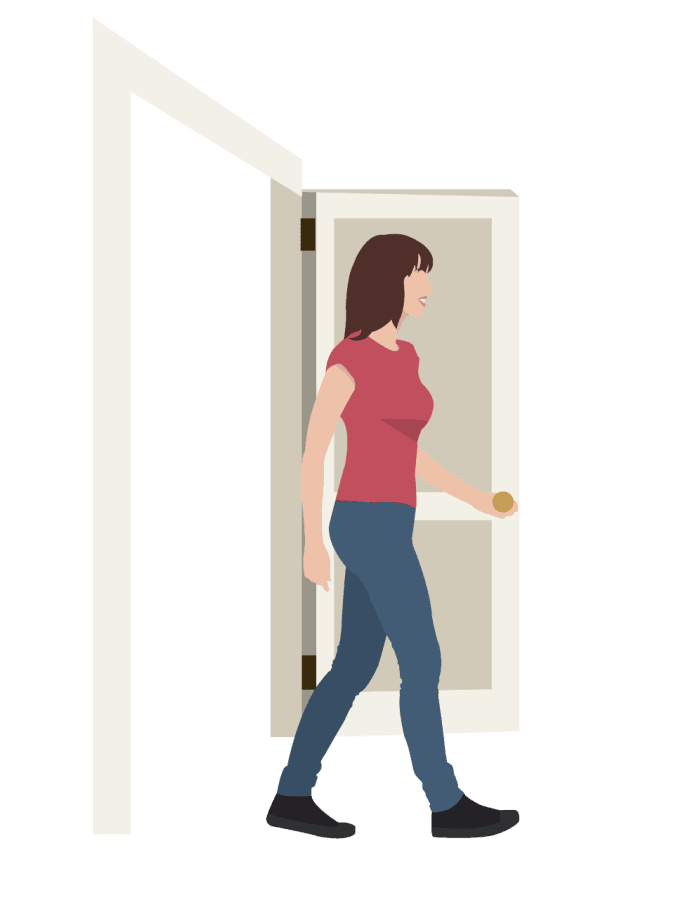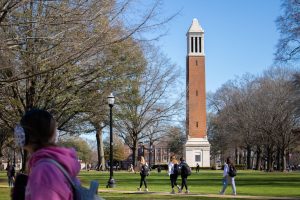Opinion | Go outside and experience Tuscaloosa
September 22, 2021
During the summer, many students were shocked to find that they had been moved off campus to accommodate for the University’s lack of on-campus capacity. These students had looked forward to spending another year enjoying the convenience of living close to class, only to find that they would now have to endure traffic and public transportation to get to the Capstone. Many criticized this move by the University, deeming it an act of poor planning and disrespect to currently enrolled students.
Now that the initial shock of this change has subsided, it can be an opportunity for students to reflect. The forced move to off-campus housing may be a very real and valid obstacle for students who didn’t plan for it. But after a month of this new reality, students on and off campus should use the experience to examine what it means to live in Tuscaloosa.
Abbie Shearer, a sophomore majoring in art and art history, views the switch as a chance to gain some privacy and independence.
“I moved from a Burke single room to a single studio apartment at East Edge; I got the best deal possible … I definitely have a deeper appreciation for personal bathrooms and kitchens with ovens you don’t share with a whole building.”
This sentiment is echoed by Ginger Morrow, a sophomore majoring in political science and international relations. She, too, has “enjoyed the feeling of independence that living off campus has provided.”
“I like having separate school and work environments. I believe having a school space and a home space has made me more productive. I love cooking, and living away from dining halls has required me to learn more recipes and become more responsible with food storage and food waste. I’ll be happy to be back on campus next year for the convenience, but I will miss the grown-up feeling being off campus has given me.”
The move has benefits beyond privacy. Just like any other challenge, the situation compels us to reexamine the world around us. It compels us to consider what it means to be a resident of the city of Tuscaloosa.
The University of Alabama often becomes its own ecosystem, a community in its own right. When traversing the path from Lakeside Dining to the Quad, it can feel like Tuscaloosa doesn’t exist beyond University Boulevard. However, Tuscaloosa is a dynamic city with a rich history, culture and community of inspiring leaders and interesting individuals.
When I was a freshman, it was amazing to me how, no matter how often I traveled around Tuscaloosa, there was always more to explore. Being so familiar with campus and the surrounding areas gave me the false impression that I knew all there was to know about the area. In reality, I had barely immersed myself in the community.
Now that I have lived off campus for the last two years, my relationship with the city has grown. Beyond being exposed to the businesses Tuscaloosa has to offer, I have also had the opportunity to see the natural beauty of the city.
Not many cities can claim such beautiful features as the Black Warrior River or Lake Tuscaloosa, but for students, these places are in our very backyard. For students who are burdened with the stress of class, work and relationships, escaping the routine of campus and spending time in nature can be grounding.
After a period of quarantine, all students know the suffocation that comes with staying in the same place for too long. As our world begins to open up, students must appreciate the gift of simply being present.
Natural beauty isn’t Tuscaloosa’s only feature. Living in Tuscaloosa, we have the opportunity to experience history. In the span of their four years here, all students should visit the Tuscaloosa Civil Rights History Trail at least once.
In order to contend with the social justice issues of our day, we must become educated about those of the past. Tuscaloosa’s history is one of bold leaders who united in the cause of ending oppression. By learning from these individuals’ examples, we may hope to adopt the same passion and understand that oppression is not simply something of the past. It is an ongoing and systemic issue that exists on our own campus.
Through the lens of history, we may begin to form solutions to the ways bigotry manifests itself in our classes, organizations and policies at the University.
In addition to experiencing nature and history, living in Tuscaloosa offers the opportunity to form new connections with those around us. As someone who does not currently have a car, I have taken to walking around the city far more than I ever havee. Through this experience, I have been able to experience the joy of meeting people again, something that has grown foreign to us all in recent years.
All students at the University, on and off campus, can become more intentional toward their community. We can all be more aware of our surroundings.
The University and city have had a long and complex relationship. At times, our presence has been a welcome one; at others, we have been a disruption. In our every interaction with Tuscaloosa, we must be conscious of this relationship. We must ensure that after our time here, it is a little bit stronger due to our actions and intentional investment in our community. We can begin to do so simply by going outside.
Ginger Morrow is a new contributing writer at The Crimson White.










